Benoquin Cream (monobenzone)
Benoquin cream, containing the active ingredient monobenzone, is primarily used to treat vitiligo, a skin condition characterized by white patches due to loss of pigment. Monobenzone works by permanently lightening the skin surrounding the affected areas to achieve a more uniform skin tone.
The cream inhibits the activity of melanocytes, the cells responsible for producing melanin, the pigment that gives skin its color. By reducing melanin production in the treated areas, Benoquin cream helps blend the white patches with the surrounding skin.
It’s essential to use it as directed by a healthcare professional to avoid potential side effects, such as skin irritation, redness, or discoloration. Sun exposure should also be limited during treatment to prevent uneven skin tone or sunburn.
Before using Benoquin cream, it’s crucial to discuss potential risks and benefits with a dermatologist to ensure it’s the right treatment for your vitiligo and to receive proper guidance on application and sun protection.
Uses
Melasma
Melasma is a common skin condition. It causes disorders like dark patches on the face, neck, and other areas of the body. This cream lightens these patches and reduces the dark spots.
Monobenzone cream for vitiligo
Due to loss of pigmentation, the skin develops a disorder causing white patches commonly called Vitiligo. Benoquin cream reduces the appearance of these patches and promotes an even skin tone.
Sun damage
Staying long under the sun can cause dark spots and uneven skin tone. You can try Benoquin(monobenzone) cream to reduce the appearance of sun damage and promote a more even complexion.
Age spots
As people age, they develop age spots on their skin. You can apply Benoquin cream daily to reduce the appearance of these spots and promote a more youthful appearance.
Post-inflammatory hyperpigmentation
Post-inflammatory hyperpigmentation occurs after an injury, acne, or other skin trauma. People apply Benoquin cream on the affected area to reduce the appearance of these spots and promote an even skin tone.
Benefits
Benoquin cream is primarily used to treat vitiligo, a condition where patches of skin lose their color due to a lack of melanin. The cream contains monobenzone, which helps depigment the skin by reducing melanin production in the affected areas.
By lightening the skin around the patches, Benoquin can help even out skin tone and reduce the visibility of vitiligo patches, leading to improved cosmetic appearance and increased self-confidence for some individuals.
However, its use and benefits should be carefully assessed and discussed with a healthcare professional due to potential side effects and permanent skin changes.
How To Use Benoquin (Monobenzone) Cream?
It is very easy to use. Here are the steps to follow:
- Use soap and water to clean your hands and the afflicted area. Using a clean towel, pat dry.
- Apply Benoquin cream to the afflicted region in a thin coating. Massage the cream into your skin gently until it is completely absorbed.
- After applying the cream, properly wash your hands.
- Use Benoquin cream twice a day, once in the morning and once at night, for optimal effects.
- Do not use the cream on skin that is not impacted by hyperpigmentation.
- When using Benoquin lotion, use sunscreen with a high SPF because it might make you more sensitive to the sun.
- Use the cream with patience and consistency. It may take many weeks or months to observe obvious improvements in your skin tone.
How Does Benoquin Cream (Monobenzone) Work?
Benoquin cream is a topical depigmenting medication that prevents melanin formation in the skin. Melanin is the pigment that gives our skin its color, and melanin overproduction can result in hyperpigmentation and skin discoloration.
When you apply Benoquin cream to your skin, it stops tyrosinase, an enzyme involved in the synthesis of melanin. This cream can successfully reduce melanin formation in the skin by inhibiting this enzyme, resulting in a lighter and more even skin tone.
Monobenzone, a powerful depigmenting agent, is an active component in this cream. Monobenzone kills melanocytes, the cells that produce melanin. As a result, melanin production in the afflicted area of the skin ceases, and the surrounding skin progressively blends in with the lighter skin tone.
You must use Benoquin cream only on regions of skin that have hyperpigmentation or discoloration. When used on healthy skin, the cream might cause hypopigmentation, in which the skin becomes lighter than the surrounding skin.
Side Effects
Benoquin cream, like all medications, can cause side effects. Some of these side effects are common, while others are less common but more serious. Here’s a list of some of the most common, uncommon, and serious side effects associated with this cream:
Common side effects
- Mild skin irritation. ( itching, redness, and dryness)
- Burning or stinging sensation
- Temporary skin discoloration or whitening
- Increased sensitivity to sunlight
- Changes in skin texture, such as roughness or peeling
Uncommon side effects
- Allergic reactions ( hives, rash, and swelling of the face or tongue)
- Blistering or crusting of the skin
- Swelling of the skin
- Darkening of the skin
- Eye irritation or redness if the cream comes into contact with the eyes
Serious side effects
- Severe allergic reactions (difficulty breathing or swelling of the throat)
- Severe skin irritation (burning or itching, and blistering or crusting of the skin)
- Infection
- Ulcers or open sores on the skin
- Pre-existing skin disorders, such as eczema or psoriasis, may worsen.
If you notice any of these significant adverse effects, immediately stop the use of the cream and seek medical treatment. Also, if you detect any other adverse effects not listed here, consult a certified dermatologist as soon as possible.
Precaution
When using Benoquin Cream, it’s essential to take certain precautions:
- Perform a patch test before full application to check for allergic reactions.
- Avoid applying Benoquin (Monobenzone) Cream to broken, irritated, or sunburned skin.
- Use sunscreen and protective clothing to shield treated areas from sunlight.
- Limit sun exposure while using Benoquin Cream to minimize the risk of sunburn.
- Inform your healthcare provider about any existing skin conditions or allergies.
- Pregnant or breastfeeding individuals should consult a doctor before using Benoquin Cream.
- Follow the prescribed dosage and application instructions precisely to avoid adverse effects.
- Discontinue use if any adverse reactions occur and seek medical advice promptly.
- Store Benoquin Cream away from children and pets, in a cool, dry place
Tips to Avoid Side Effects
Here are some suggestions for controlling or avoiding the negative effects:
Pay close attention to the directions
As advised by your dermatologist, apply Benoquin cream as needed. The chance of side effects might rise if you use the cream excessively on healthy skin.
Protect your skin
Wear clothes like caps and long sleeves, and use sunscreen with an SPF of 30 or higher to protect your skin from the sun.
Use moisturizers
Keep your skin moistened with a mild moisturizer to control dryness and irritation.
Test before use
First, try the cream on a tiny piece of skin before applying it to a larger region of skin. This might assist you in determining if you are allergic to the cream or whether it causes irritation.
Avoid contact with eyes and mucous membranes
You must not apply Benoquin cream to the eyes or mucous membranes since it might cause severe irritation and burning. If it gets into your eyes or mouth, immediately rinse it with water.
Frequently Asked Questions
Does Benoquin work if you don’t have vitiligo?
How to buy Benoquin Cream?
Is Benoquin Cream safe?
This cream should be used under medical supervision. While it can be safe and effective when used as prescribed, individual responses may vary, and side effects can occur. Consult a dermatologist for guidance.
Do I need a prescription to buy Benoquin cream?
Yes, you need a prescription from a skin doctor to buy this cream.
Can I use Benoquin for skin whitening??
You must use this cream for skin-lightening or cosmetic purposes. It is a medication to treat specific medical conditions and should only be used as directed by a doctor.
Are there any precautions or warnings associated with Benoquin(monobenzone) cream?
Yes, there are many precautions and warnings you must take care of before using this cream.
- It is not for pregnant or breastfeeding women
- It should not be used on areas of the skin with active inflammation or infection
- People with a history of skin cancer or a family history of melanoma should also avoid using Benoquin cream
How long does it take for Benoquin(monobenzone) cream to work?
It depends on the person and the type of condition being treated. Generally, it takes a few weeks or months of regular use before you start to notice improvements.
Where to buy monobenzone cream for vitiligo
Visit www.lyfechemist.com to buy Benoquin cream(monobenzone cream for vitiligo)
How long does it take to notice Benoquin cream before and after results
The time it takes to notice the before and after results can vary from person to person. Typically, noticeable changes may occur after several weeks to a few months of consistent use.
Is Benoquin a bleaching cream
Yes, It is a depigmenting or bleaching cream used to treat conditions like vitiligo by lightening the skin in affected areas to match the surrounding skin tone.
Can I use Benoquin cream for skin-lightening
Yes, It is used for skin lightening in cases of localized hyperpigmentation or conditions like vitiligo, where depigmentation helps achieve a more uniform skin tone. Consult a dermatologist for guidance.
How quickly does Benoquin work?
Conclusion
Benoquin cream contains monobenzone, used to treat skin conditions like vitiligo by depigmenting areas of the skin. It inhibits melanin production, lightening the skin. However, it’s vital to use cautiously due to potential side effects like irritation or permanent skin lightening.
Consultation with a healthcare professional is essential before using Benoquin cream, ensuring proper application, monitoring for adverse reactions, and understanding its effects on the skin for safe and informed usage.

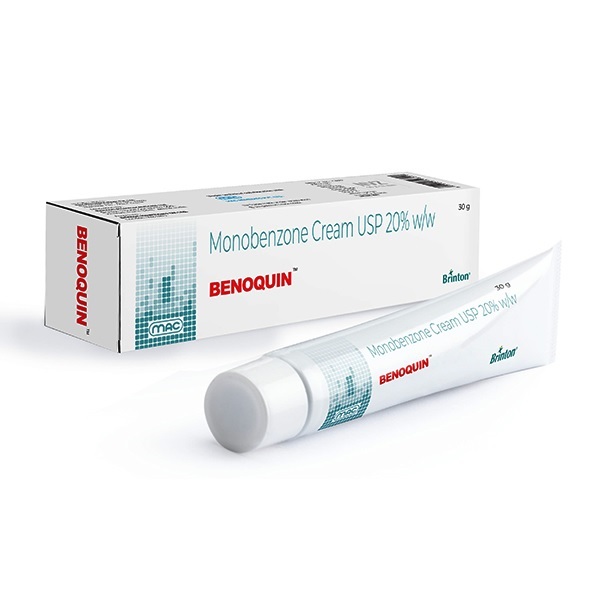
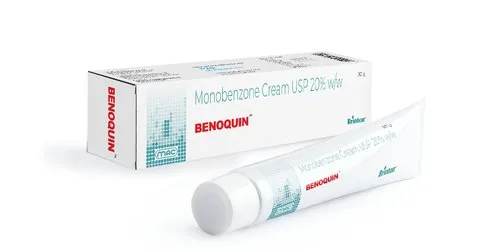


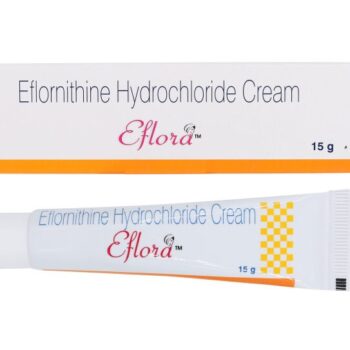
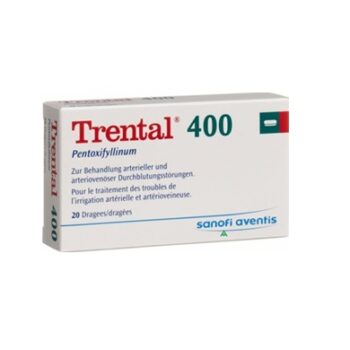

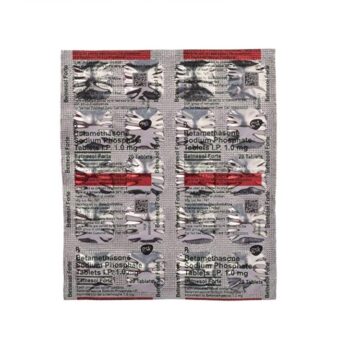
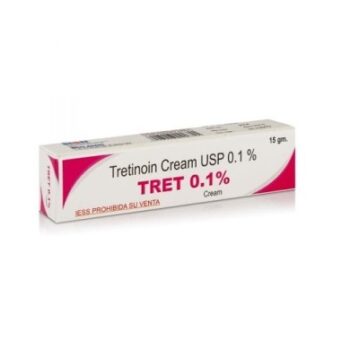
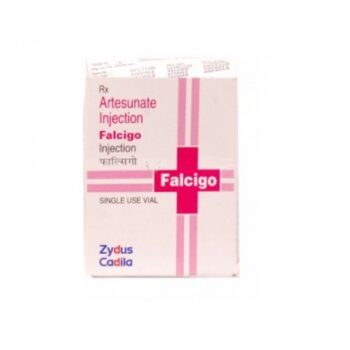


Reviews
There are no reviews yet.